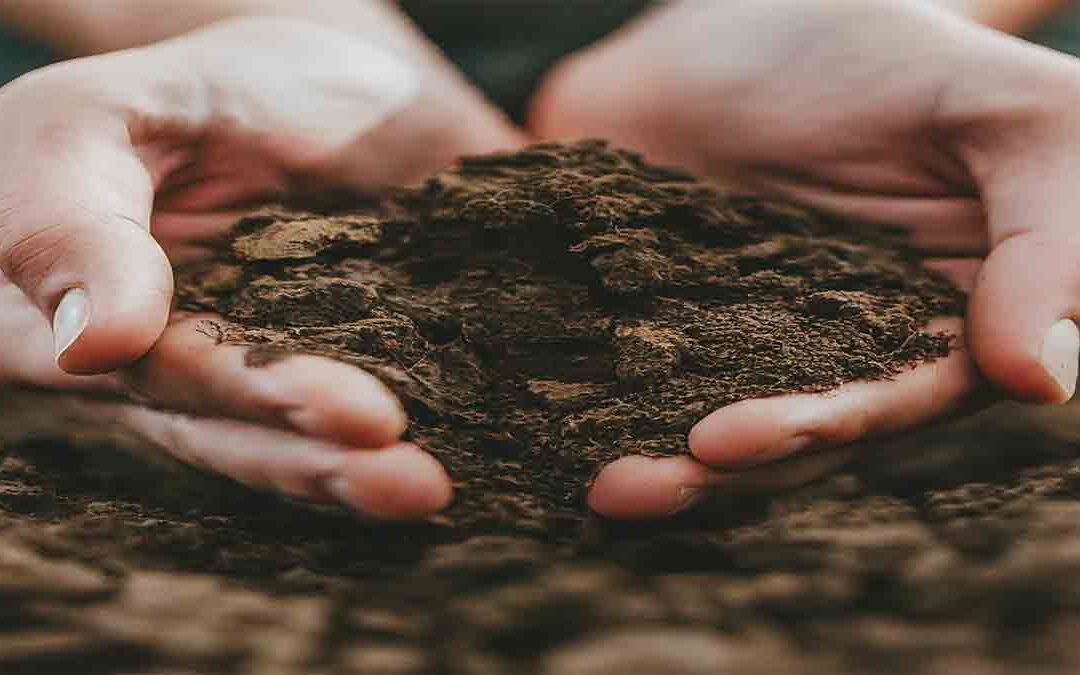Close your eyes and imagine… the earthy scent of damp soil filling your nostrils, the cool, crumbly texture between your fingers as you dig, the vibrant hues of freshly bloomed flowers dancing in the sunlight. This isn’t just a scene from a gardening magazine – it’s a potential prescription for a happier, healthier mind.
Could getting your hands dirty actually be a form of therapy? Increasingly, science is saying yes. The practice of “soil therapy,” also known as ecotherapy or horticultural therapy, is gaining traction as a powerful tool for boosting mental well-being. It’s not just about the joy of watching plants grow; it’s about the surprising connection between the soil beneath our feet and the complex workings of our brains.
The Science of Soil and Your Mental Health
Emerging research suggests that the very microbes teeming in healthy soil may hold the key to unlocking a happier, more resilient mind. These “old friends,” as scientists call them, are microbes we’ve co-evolved with for millennia, including beneficial bacteria like Mycobacterium vaccae. These bacteria may act as immune system modulators, helping to regulate inflammation – a key factor in many mental health conditions like depression and anxiety. Recent studies have even shown that exposure to M. vaccae can increase serotonin levels in mice, potentially explaining some of the mood-boosting effects of gardening.
But that’s not all. The science behind soil therapy delves even deeper:
- Serotonin & the Sunshine Vitamin: Certain soil bacteria have been linked to increased production of serotonin, the neurotransmitter responsible for feelings of happiness and well-being. Plus, spending time outdoors gardening naturally increases your exposure to sunlight, boosting vitamin D levels – another essential nutrient for a balanced mood.
- Grounding for Stress: The simple act of touching the Earth’s surface, known as grounding or earthing, is being explored for its potential to reduce stress hormones like cortisol and improve sleep. While more research is needed, some studies suggest that grounding can have a calming effect on the nervous system.
- The Microbiome Connection: Your gut and your brain are intricately linked. Soil microbes may influence the composition of your gut microbiome, which in turn can impact your mood and mental health. A healthy gut is increasingly recognized as a key factor in overall well-being.
The Emotional Harvest of Gardening
Gardening is more than just a hobby; it’s an active form of mindfulness that nurtures not only plants but also the mind. The simple act of tending to a garden can anchor you in the present moment, fostering a sense of calm and connection to the natural world. As you sow seeds, water seedlings, and prune foliage, your worries fade, replaced by a quiet focus on the task at hand. This mindful engagement has been shown to reduce stress, anxiety, and even symptoms of depression.
But the emotional benefits of gardening go beyond mindfulness. Remember those feel-good microbes we talked about? They’re not just boosting your immune system; they might be boosting your mood too. Those anecdotal reports of gardeners feeling happier and more relaxed aren’t just a coincidence – there’s science to back it up.
Gardening can also cultivate a “growth mindset” – a belief in your ability to learn and improve. As you nurture your plants, you witness firsthand the power of patience, perseverance, and care. This sense of accomplishment and control can be especially empowering for those struggling with low self-esteem or depression.
And the benefits extend beyond your own backyard. Simply being in nature – whether it’s a community garden, a park, or a forest – has been shown to reduce rumination (dwelling on negative thoughts), improve attention, and foster a sense of belonging. It’s like receiving a warm embrace from Mother Earth, reminding you that you’re part of something bigger and more beautiful.
Soil Therapy for All
Ready to reap the emotional harvest of gardening? You don’t need a sprawling estate to get started. Even a small balcony or window box can offer a therapeutic connection to the soil. Start with easy-to-grow herbs or flowers, or explore the wealth of online resources and community gardens for guidance and support.
Speaking of community gardens, they offer a unique opportunity to connect with others who share your passion for plants and mental well-being. These green spaces often host workshops, social events, and volunteer opportunities, fostering a sense of community and belonging.
But soil therapy doesn’t stop at the garden gate. You can experience the grounding benefits of soil through forest bathing (immersing yourself in the sights, sounds, and smells of a forest), nature walks, or even tactile activities like pottery or soil-based art. The key is to find ways to engage with the earth that resonate with you and bring you joy.
FAQs About Soil Therapy
Q: How much time do I need to spend gardening to experience mental health benefits?
A: There’s no magic number, but research suggests that even just a few minutes of gardening can have a positive impact on mood and stress levels. Aim for at least 30 minutes of outdoor activity a few times a week to maximize the benefits of soil therapy and nature exposure.
Q: Does it matter what kind of plants I grow?
A: The type of plant you choose is less important than the act of engaging with nature and the soil. Choose plants that you enjoy and that are suited to your climate and skill level. Even a small herb garden or a few potted flowers can provide significant benefits.
Q: Can soil therapy replace traditional mental health treatment?
A: Soil therapy can be a valuable complementary therapy for mental health conditions, but it’s not a substitute for professional treatment. If you’re struggling with depression, anxiety, or other mental health concerns, it’s important to seek guidance from a qualified healthcare provider.
Q: Are there any risks associated with soil therapy?
A: While soil therapy is generally safe, it’s important to take precautions such as wearing gloves and washing your hands thoroughly after gardening. Some individuals may have allergies to certain plants or soil components, so it’s wise to consult with your doctor if you have concerns.
Conclusion:
Soil therapy is a growing field with promising research supporting its benefits for mental health. Whether you have a sprawling garden or a humble window box, embracing the dirt could be a simple yet powerful way to cultivate a happier, healthier you. So go ahead, get your hands dirty, and discover the surprising power of soil therapy. Your mind (and your garden) will thank you.

